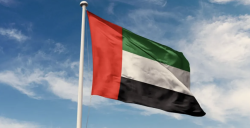‘There are no dollars’: foreign currency crunch hits Egypt’s economy
- 2023-01-01 12:24:43


 Pierre Rayer: Art, Science, and Happiness: The Universal Mission of Transmission to Future Generations through Patronage at the Louvre Abu Dhabi
Pierre Rayer: Art, Science, and Happiness: The Universal Mission of Transmission to Future Generations through Patronage at the Louvre Abu Dhabi Ahly crowned Super champions after dramatic extra-time win over Modern Future FC
Ahly crowned Super champions after dramatic extra-time win over Modern Future FC Yemeni Honey..A Development Wealth Threatened By Conflict And Climate Change
Yemeni Honey..A Development Wealth Threatened By Conflict And Climate Change California wildfires: Millions warned of possible power cut
California wildfires: Millions warned of possible power cut Central African rebels launch attacks near capital
Central African rebels launch attacks near capital King Receives Invitation from Trump to Join Peace Council
King Receives Invitation from Trump to Join Peace Council Cybersecurity Firm Malwarebytes Reveals Instagram Data Breach Affecting 17 Million Users
Cybersecurity Firm Malwarebytes Reveals Instagram Data Breach Affecting 17 Million Users UAE signs agreement to support humanitarian efforts in Sudan
UAE signs agreement to support humanitarian efforts in Sudan UAE welcomes announcement of second phase of Gaza peace plan
UAE welcomes announcement of second phase of Gaza peace plan SDF Confirms Clashes with “Damascus Militants” in Al-Mansoura
SDF Confirms Clashes with “Damascus Militants” in Al-Mansoura
